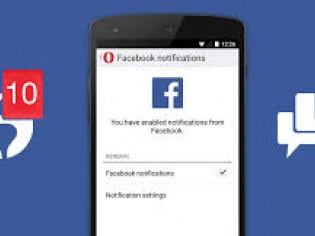-
Team TechTree
10:52 17th May, 2016
Vietnam Shuts Facebook, Citizens Switch To Hola | TechTree.com
Vietnam Shuts Facebook, Citizens Switch To Hola
Almost 200,000 Vietnamese citizens have turned to Hola, a popular VPN service, to fight censorship and access the website.

Since April, people of Vietnam have witnessed millions of dead fish and other deep sea creatures wash ashore and it has been dubbed as the country’s worst environmental disaster. The disaster has sparked public outrage across the country. The decision to block Facebook, as well as photo-sharing app Instagram, came as dissidents tried to rally for the third successive week to protest for an environmental disaster they claim was caused by the Vietnamese government and Taiwan's Formosa Plastics.
Though security forces have been preventing protesters from gathering in Hanoi and Ho Chi Minh City, many citizens have been using Facebook to exchange information and organize rallies, thus the government is presumed to have shut the website down.Israeli proxy service Hola experienced a massive surge of downloads of the popular app and browser extension in Vietnam in the hours following the Facebook blockade.
"As the Internet becomes the mainstream method of exchanging of information between people, more and more governments, service providers and corporations are closing down on the citizens' freedom of information. Hola's P2P technology removes these barriers and makes the Web worldwide again," said a spokesperson from Hola.
While some Vietnamese may have chosen to communicate through other social media channels, many of them preferred to rely on a VPN service to continue using Facebook. Most VPNs cost between five to ten dollars a month. In a country as Vietnam, where the average monthly wage is around $150, a VPN approaches 1 per cent of monthly family income, a disproportionate amount of money to spend on such service. VPNs are so expensive because they need to pay for the costly servers through which their users' traffic pass, and they ought to make a profit from it, as well.The reason why hundreds of thousands turned to Hola is that the service is free ofcharge due to its P2P technology.
Hola's peer-to-peer (P2P) nature, in fact, does not rely on any server, so there is no underlying cost of service. Its users surf the internet anonymously by securely routing through other users' computers when these are not in use. Hola is free for non-commercial use only; the company profits from Luminati, the same proxy service offered to businesses for commercial use. This enables Hola to provide the non-commercial service free of charge. Since its launch in 2013, the service has been used by 80 million people in multiple countries to democratize the web. Earlier in May, for instance, WhatsApp users located in Brazil installed Hola to access the messaging app, which had been blocked by the government due to a court ruling.
- DRIFE Begins Operations in Namma Bengaluru
- Sevenaire launches ‘NEPTUNE’ – 24W Portable Speaker with RGB LED Lights
- Inbase launches ‘Urban Q1 Pro’ TWS Earbuds with Smart Touch control in India
- Airtel announces Rs 6000 cashback on purchase of smartphones from leading brands
- 78% of Indians are saving to spend during the festive season and 72% will splurge on gadgets & electronics
- 5 Tips For Buying A TV This Festive Season
- Facebook launches its largest creator education program in India
- 5 educational tech toys for young and aspiring engineers
- Mid-range smartphones emerge as customer favourites this festive season, reveals Amazon survey
- COLORFUL Launches Onebot M24A1 AIO PC for Professionals







TECHTREE